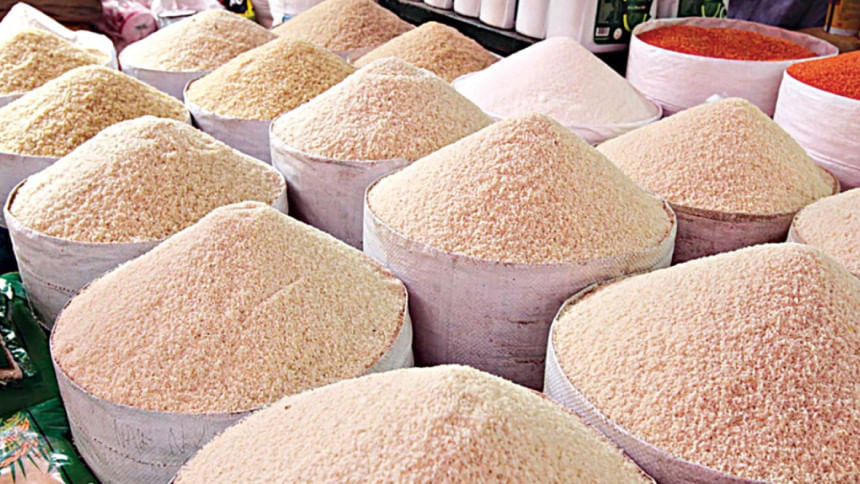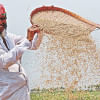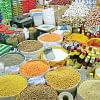Rice prices remain key driver of inflation: GED report

Rice prices remain a major concern for food inflation as well as overall inflation, according to a report by the General Economics Division (GED) of the Bangladesh Planning Commission.
Bangladesh's overall inflation was 8.55 percent in July, up from 8.48 percent a month ago. Food inflation edged up by 7.56 percent in July.
And just over half of the food inflation came from rice in the same month, according to the Economic Update & Outlook August 2025 by the GED released today.
The report said the contribution of rice to food inflation increased from 40 percent in May to 51.55 percent in July. Medium rice and coarse rice contributed 24 percent and 18.39 percent, respectively, to food inflation in July, it added.
"All three categories of rice have been recording double-digit inflation, fine rice for the past twelve months and medium and coarse rice since December 2024. In July, inflation for each category stood at around 15 percent."
Over the past one month, the price of coarse rice in Dhaka stood at Tk 55-Tk 60 per kilogram. Year on year, the price rose 7.48 percent, according to market prices data by the Trading Corporation of Bangladesh (TCB).
Prices of fine and medium grain were also higher than a year ago.
The GED report noted that the yield of Boro paddy was expected to contain rice prices from June onwards. But data from the Bangladesh Bureau of Statistics (BBS) showed otherwise.
According to BBS estimates, the production of Aus paddy fell 0.85 percent and Aman paddy 6.04 percent in fiscal year 2024-25.
"The decline in yields was attributed to frequent floods and unfavourable weather conditions," it said, adding that the land under cultivation of Aus shrank by 7.32 percent from the previous year.
The GED report cited the government's announcement regarding the procurement of 14 lakh tonnes of Boro rice between 24 April and 31 August 2025. As of August 13, the food ministry purchased 16.44 lakh tonnes of rice.
Yet, rice distribution in July slumped 36 percent year on year to 62,889 tonnes, said the GED.
The GED report cited the food ministry's initiative to increase the supply of rice in the market by allowing the private sector to import the staple. The ministry allowed 242 private importers to import 5 lakh (500,000) tonnes of rice and directed them to market the grain by September 30.
The GED said the measures may take months to impact retail prices. "Uncertain weather in the coming months could further threaten supply." In this context, the report suggested that the government may need to accelerate food grain imports and procurement while scaling up Open Market Sale (OMS) distribution in the short term.
Within the broad food category, the contribution of vegetables and root crops fell sharply by 6.48 percent and 10.34 percent, respectively, helping ease pressure to some extent.
At the macroeconomic level, the government has undertaken several steps to curb inflation, which surged into double digits earlier this year. Coordinated measures between the Bangladesh Bank and the finance ministry included tightening monetary policy, raising interest rates, and restricting imports of luxury goods.
These efforts began to yield results by mid-2025, as inflation showed signs of easing and the exchange rate stabilised, the report said.
"Although macroeconomic stability has been largely restored, persistent revenue shortfalls have led to substantial government borrowing from commercial banks, somewhat crowding out private sector investments," the GED observed.
"The limited fiscal space constrains public investments in social sectors."
To strengthen revenue mobilisation, the government has dismantled the National Board of Revenue (NBR) and created two separate divisions, revenue management and revenue policy.
The restructuring is expected to positively impact revenue collection and fiscal governance in the coming years, it said.

 For all latest news, follow The Daily Star's Google News channel.
For all latest news, follow The Daily Star's Google News channel. 







Comments